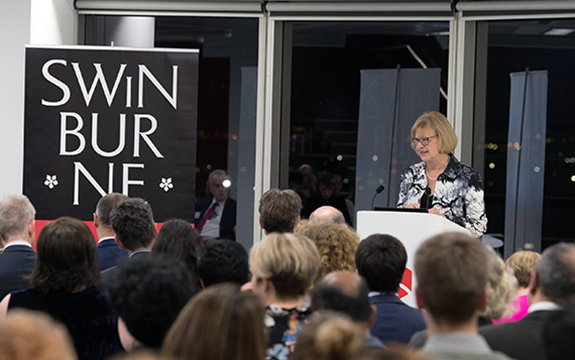Grand challenges for smart cities

In Summary
- Smart Cities Research Institute brings a unique approach to transforming today’s cities
- Its focus is on reducing congestion, improving economic productivity, reducing dependency on fossil fuels, improving human health and mobility
- Professor Mark Burry is the inaugural Director of the SCI
Swinburne’s Smart Cities Research Institute is bringing a unique socio-technical, interdisciplinary and collaborative approach to transforming today’s teeming, fast-growing cities into the metropolises of the future.
Since before the industrial revolution, the rapid growth of cities has placed enormous pressure on housing, mobility, public health and employment. In the 21st century, the challenges of large, fast-growing cities are even more pressing, and now include environmental sustainability, digital technologies for work and home, and changing demographics.
The Smart Cities Research Institute has been created to meet these challenges, and exemplifies Swinburne’s mission to create social and economic impact through science, technology and innovation.
“The Institute’s research will focus on the grand challenges of reducing congestion, improving economic productivity, reducing our dependency on fossil fuels, and improving human health and mobility," says Professor Aleksandar Subic, Swinburne Deputy Vice-Chancellor (Research and Development).
“We’re looking forward to working with Professor Mark Burry, the Institute Director, as he establishes and grows the Smart Cities Research Institute, connecting Swinburne’s research to leading global development in this field.”
Professor Burry, the inaugural Director of the Institute, is a leading international figure in the field of future cities.
“We continue to expand our cities with little regard for the pressures that swelling populations place on our environment and resources, and thereby the health and functionality of our cities,” says Professor Burry.
“It’s unlikely that any single theory from any single discipline is equal to the task of addressing the rapid changes and complex dynamics of 21st century urbanisation. The Smart Cities Research Institute brings together multiple disciplines to this urgent task of preparing our cities for the future.”
The Institute will pursue four key research themes:
- New urban governance structures
- Sustainable urban mobility
- Smart spaces for home and work
- Smart and sustainable infrastructure and delivery systems
To examine such wide-ranging fields of research, the Institute will draw on Swinburne’s expertise across numerous disciplines, including complex systems modelling of transport options and existing land use; the health and mobility needs of aging urban populations; hybrid energy systems; new technologies for water and waste management; and new governance and engagement models for institutional and community stakeholders.
The Institute will partner with government, industry bodies and professional practices to pursue its objectives of helping remove barriers to urban innovation and developing innovative technologies and interventions to create substantial change in urban environments.
Partnering with ‘the smart citizen’ will also play a role, using online and mobile technology tools to engage actively with urban populations for feedback on their needs and engagement on proposed projects and services.
The Smart Cities Research Institute launched at Engineers Australia in Melbourne on 7 June 2017.

